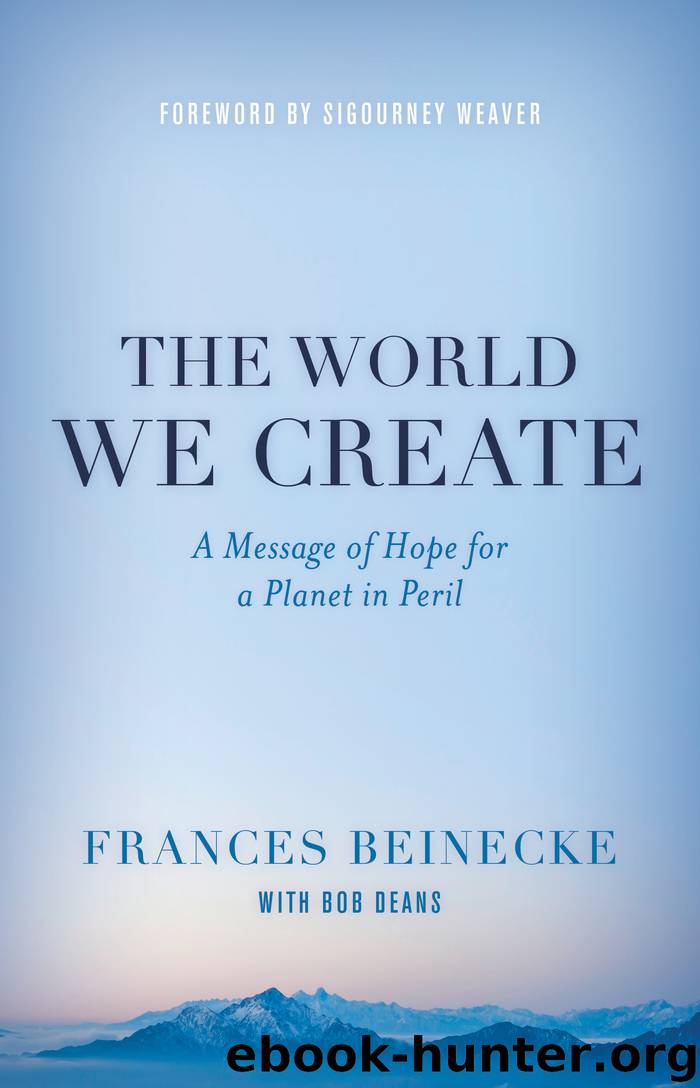The World We Create by Frances Beinecke

Author:Frances Beinecke
Language: eng
Format: epub
Tags: undefined
Publisher: Rowman & Littlefield Publishers
Published: 2012-12-24T16:00:00+00:00
A National Risk
In 2013, U.S. railroads spilled more crude oil—1.2 million gallons—than they did in the previous four decades combined, McClatchy Newspapers reported. The analysis relied on data provided by the U.S. Pipeline and Hazardous Materials Safety Administration, an oversight bureau of the U.S. Transportation Department.
The basic problem is that neither our railroad system, nor, for the most part, the tank cars being used to haul this crude were designed to carry highly combustible liquids. The rail system's not up to the task, and it's being used anyway, chiefly to carry crude oil from the Bakken fields of North Dakota. By April 2014, those fields were producing an average of 42 million gallons of crude oil every day, a twelvefold increase from just a decade before. With only 34 percent of that being shipped out by pipeline, as of spring of 2014, the rest moves out on trains like the one that blew up in Lynchburg.
Ordinary crude oil doesn't necessarily explode in a crash. But Bakken crude—like oil from other shale deposits in parts of Texas, Colorado, Wyoming, and elsewhere—contains high levels of flammable gases, compared with more conventional crudes. That means this kind of crude has a greater propensity to ignite in crashes.
Industry recognizes the problem. In South Texas, for example, energy companies invested hundreds of millions of dollars in equipment called stabilizers, which remove the most volatile gases from the crude before it is shipped, making it more stable and less prone to explosion. Only one such unit was being readied for the Bakken fields, The Wall Street Journal reported in July 2014, noting that, privately, some pipeline companies refused to transport Bakken crude that hadn't first been stabilized, out of fear it would cause a pipeline explosion.
"In North Dakota's Bakken Shale oil field, nobody installed the necessary equipment," the Journal reported in a July 7 article. As a result, the report continued, the Bakken "is producing oil that pipelines often would reject as too dangerous to transport."
And so it winds up on trains instead, exposing people and communities along the rail lines that ferry this dangerous freight to the growing risk of death, injury, and environmental contamination. Indeed, North Dakota is counting on rail carrying more and more Bakken crude to market.
"Crude oil take away capacity is expected to remain adequate as long as rail deliveries to coastal refineries keep growing," the North Dakota Department of Mineral Resources stated in a July 2014 update of oil and gas production figures.
As railroads ferry more and more crude oil, the risks of transporting potentially explosive cargo touches a growing number of communities nationwide. ForestEthics, a San Francisco environmental group, estimates that 25 million Americans live within a mile of a rail line that regularly carries crude oil. The group based its estimate on a conservative reading of industry data and posted its findings, with a map of the rail routes, on a website named "Oil Train Blast Zone." It shows a web of oil train routes crisscrossing the country,
Download
This site does not store any files on its server. We only index and link to content provided by other sites. Please contact the content providers to delete copyright contents if any and email us, we'll remove relevant links or contents immediately.
| Acoustics | Bridges |
| Earthwork Design | Environmental |
| Fire Science | Highway & Traffic |
| Hydrology | Remote Sensing |
| Seismic Design | Structural |
| Structural Dynamics | Surveying & Photogrammetry |
| Transportation |
Whiskies Galore by Ian Buxton(42014)
Introduction to Aircraft Design (Cambridge Aerospace Series) by John P. Fielding(33128)
Small Unmanned Fixed-wing Aircraft Design by Andrew J. Keane Andras Sobester James P. Scanlan & András Sóbester & James P. Scanlan(32800)
Craft Beer for the Homebrewer by Michael Agnew(18245)
Turbulence by E. J. Noyes(8049)
The Complete Stick Figure Physics Tutorials by Allen Sarah(7373)
The Thirst by Nesbo Jo(6944)
Kaplan MCAT General Chemistry Review by Kaplan(6933)
Bad Blood by John Carreyrou(6621)
Modelling of Convective Heat and Mass Transfer in Rotating Flows by Igor V. Shevchuk(6440)
Learning SQL by Alan Beaulieu(6290)
Weapons of Math Destruction by Cathy O'Neil(6280)
Man-made Catastrophes and Risk Information Concealment by Dmitry Chernov & Didier Sornette(6019)
Digital Minimalism by Cal Newport;(5764)
Life 3.0: Being Human in the Age of Artificial Intelligence by Tegmark Max(5558)
iGen by Jean M. Twenge(5416)
Secrets of Antigravity Propulsion: Tesla, UFOs, and Classified Aerospace Technology by Ph.D. Paul A. Laviolette(5371)
Design of Trajectory Optimization Approach for Space Maneuver Vehicle Skip Entry Problems by Runqi Chai & Al Savvaris & Antonios Tsourdos & Senchun Chai(5068)
Pale Blue Dot by Carl Sagan(5008)
